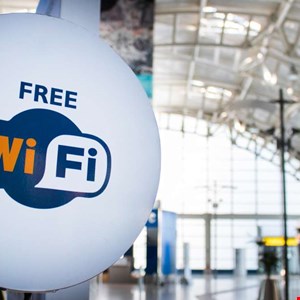A 42-year-old Australian resident has been apprehended by the Australian Federal Police (AFP) for allegedly setting up a network of fraudulent free Wi-Fi access points in airports. These ‘evil twin’ Wi-Fi devices were strategically placed at various locations, posing as legitimate networks to deceive unsuspecting individuals into connecting to them and unknowingly surrendering personal data.
The AFP claimed that once users attempted to connect their devices to these fake networks, they were directed to a counterfeit webpage prompting them to log in using their email or social media credentials. The information entered was then purportedly saved on the suspect’s devices. The harvested email and password details could potentially provide access to more sensitive information, such as online communications, stored media, or financial data of the victims.
The individual appeared in the Perth Magistrates Court on June 28, 2024, facing nine charges related to cybercrime offenses. The charges stemmed from the AFP’s investigation which began in April 2024 after a report from an airline expressing concerns about a suspicious Wi-Fi network identified during a domestic flight. Following the report, AFP investigators conducted a search of the suspect’s belongings at Perth Airport upon his return on April 19, seizing a portable wireless access device, a laptop, and a mobile phone from his possession. A subsequent search of his residence in Palmyra, Western Australia led to the discovery of fraudulent Wi-Fi pages in airports across Perth, Melbourne, and Adelaide, as well as personal credentials belonging to numerous individuals on his devices.
The arrest and formal charges were made on May 8 during a second search at the suspect’s home in Palmyra. AFP Western Command Cybercrime Detective Inspector Andrea Coleman emphasized the importance of exercising caution when connecting to public Wi-Fi networks, citing the need to avoid entering personal information like email or social media accounts to access free Wi-Fi. She offered a set of recommendations for individuals using public Wi-Fi hotspots, such as installing a reputable virtual private network (VPN) to secure data, disabling file sharing, refraining from conducting data-sensitive tasks like banking over free Wi-Fi, and forgetting the network settings on devices after use.
Coleman also advised individuals to disable Wi-Fi on their electronic devices before venturing out to prevent automatic connections to potentially unsafe hotspots. The case serves as a potent reminder of the risks associated with public Wi-Fi usage and highlights the importance of taking proactive measures to safeguard personal information in an increasingly digital environment.


